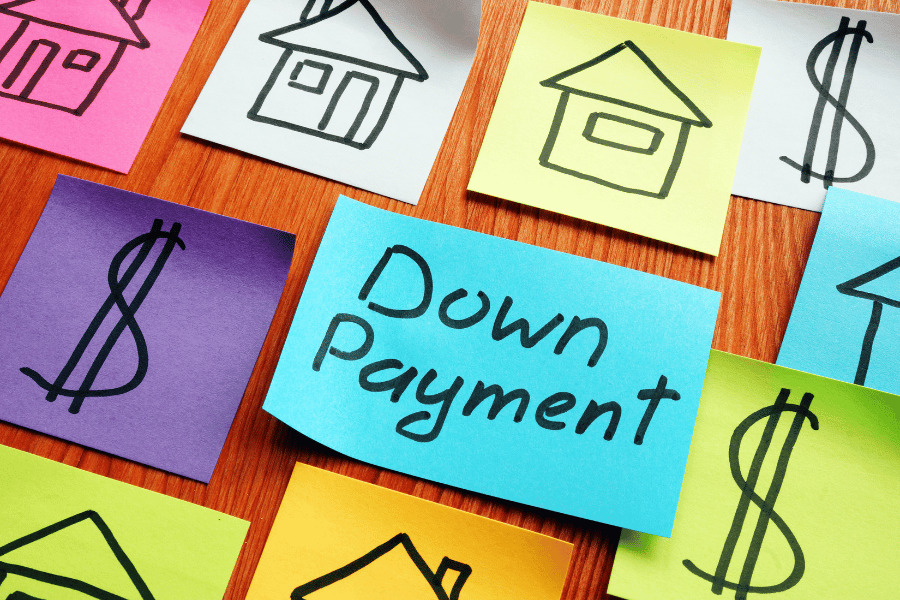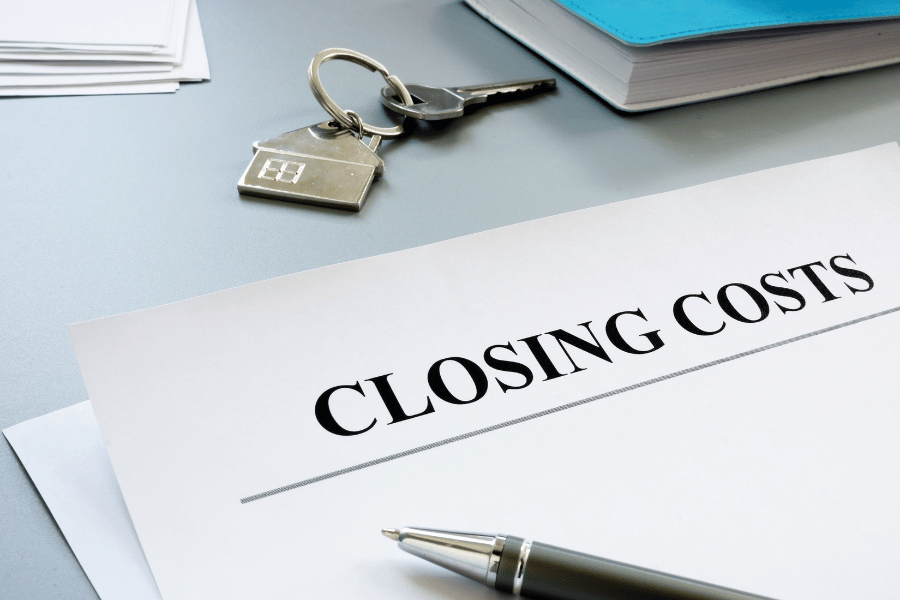How Much Money Should You Save Before Buying a House?
Before you start house hunting, let's dive into some easy ways to save money so you can afford the home of your dreams!
You are thinking about buying a new house, and suddenly, many thoughts are swirling through your mind. As exciting as purchasing a home can be, we want to ensure that you go through this process prepared for what is in store.
How much do I need to save to buy a house? How much should I be putting aside each month? These are all great questions you will want to know the answers to before you start your home tours and showings!
Since these are common questions that many Real Estate Agents are asked frequently, the answer depends on how much your budget allows for and how much you want to spend. Speaking with a lender to determine your buying power in an ideal situation is essential.
Your target Purchase Price will change the amount you should be saving significantly. It also depends on the type of loan that you will be acquiring.
Some things to consider are:
How much will I need to put 20% down on a Conventional Loan?
How much will I need to put down if I want to use an FHA loan?
I'm a Veteran; I would like to get a VA loan; how much money should I be prepared to have as a deposit?

How Much Money Should I Save For A Down Payment?
When you connect with a loan officer, you should start asking how much you should have saved in cash that is readily available during the home-buying process. Many lenders will tell you that you should have about 20% of your Purchase Price to use as a deposit.
There are many reasons why having 20% will ultimately help you. One of the biggest reasons is that once you have put down 20%, the bank will not add any private mortgage insurance fees to your monthly mortgage payment.
Many Americans may not have the option to do this, and we're here to tell you that's ok! Although having 20% down is optimal for securing a loan, it certainly is not required, and this is why people choose to save for a house while renting.
Some banks will offer you as little as 3% down, which is much more attainable for many homebuyers. We recommend you speak with a lender and get the pre-approval process started as soon as possible. You will need to gather your loan documents and submit them to your loan officer to ensure the most accurate pre-approval possible.
Once your limit is set through your pre-approval, you will know how much the minimum requirement would be for you to put down on your home.
This is the time to look over what you have available to use and if you would like to take some time to save up some more money for those deposits, inspections, and closing costs.

What is the Minimum Amount Owed for a Down Payment Depending on Which Loan I Choose?
As long as you meet the minimum requirements stated by your lender, the amount you put down is ultimately up to you. As expressed in this article, 20% is most desirable, and if you can put even more than that down, you're ahead of the game.
We have put together this chart for you to understand better what the minimum requirements would be depending on the type of loan you choose to acquire:
| Loan Type | Conventional Loan without PMI | Conventional Loan with PMI | FHA | VA |
| Minimum Percent Required Down | 20% | 3%-10% | 3.5% | 0% |
As you can see, so many options do not require 20% down, and you can even get away with 0% down with a VA loan if you're an active duty or retired U.S. service member.
What Do Closing Costs Typically Cost?

Your closing costs can vary greatly depending on how much you are paying. We'll show you the best example possible, but please remember that these amounts will change depending on the purchase price.
The example we are going to use is a Purchase Price of $400,000. Most of the time, you will pay for inspections and the bank appraisal outside of closing, so we will leave those off the list for this example's sake.
- Loan Origination Fee: $4,000 (1% of Purchase Price)
- Loan Application Fee: $300
- Prepaid Interest: $250
- Prepaid Property Taxes: $1,200 (Held in Escrow)
- Prepaid Homeowners Insurance: $900
- Title Insurance: $500
- Deed Registration: $90
- Closing Attorney Fee: $950
- Survey: $700
- HOA Transfer Fee: $100
TOTAL AMOUNT DUE IN CLOSING COSTS: $8,990
This total amount due in closing costs will be added to the amount you have decided to use as your deposit amount, and your closing attorney will give you the exact amount to bring to closing.
For this example, we are putting 10% down. You would need to bring $40,000 + $8,990 = $48,990 cash to close to the closing table. This amount is usually wired directly to the closing attorney from your banking institution.
What Are Some Easy Ways to Save Money Before I Start House Hunting?
It's important to remember that buying a home is a process, and you must start somewhere. Before you even think about starting the process with a lender, you will want to ensure that your spending habits are healthy and modest as we prepare lenders to look at our spending habits. Consider buying a home with your parents to save up extra cash or buy your dream home.

1. Get Rid of Monthly Subscriptions
Ditch the extra monthly subscriptions! It has become common practice for many Americans to subscribe to streaming outlets such as Netflix and Hulu, and while we love our entertainment, you should try to keep it to two max! You won't miss them when they're gone, nor will your wallet. You can pick your top two most using streaming services and ditch the rest. You'll thank us later for this.
2. Take Advantage of Internet and Cable Promotions
You can call your internet and cable providers to find out if they are running any promotions to help lower that monthly bill. Most of the time, these companies run specific promotional specials that you may qualify for. So that you know, all you need to do is ask. You will often find that you can save hundreds just by making that phone call.
3. Eat at Home
Take some more time to cook at home and stop eating out! It's always fun to have a night out where you don't have to cook for yourself, but the home of your dreams is just around the corner, and it's time to start making some sacrifices. Pick one night a week you will eat out, dust off those cookbooks, and get to cooking at home. Many people will find this easy to stick to because it's just a matter of habit and readjusting those habits.
4. Sell Unused Furniture
Start selling unused furniture or home decor that you know won't be coming with you to your new home! Sooner or later, once you have found the house of your dreams, you will need to start purging your things and deciding which stays and which goes. Why not start now? Start taking inventory of the items you no longer want. Polish them up and sell them. People will often find this a fun and easy way to keep some change in their pocket while also allowing you to scale down your items before you move!
5. Hold Off on Personal Shopping
Put a hold on personal shopping for a little while. So long, Amazon! We will miss you. But we will see you again soon. Remember that while you are fighting the urge to spend on personal items, you are saving more money to use when you move into your new house. There will be so many things you will want to buy to fill the walls of your new home, so hold off on spending for now so you will have more to use towards your new home.
6. Ask for a Raise At Work
Ask for a raise! Has it been a while since your last review? If you have been with your employer for a while and feel like it's time to have a conversation, now would be the perfect time to do it. It's essential in this world to remember your worth, and if the timing is appropriate, this will only help you in the long run when you're getting ready to secure a large loan with a lender.
7. Automate Savings
Automate your savings if you haven't already. Sometimes it's as simple as replacing the bad habit of eating out to lunch three times a week with automatically setting up your bank to transfer $75 per week into your savings account. You will be shocked to see how quickly this amount will build on itself.
8. Plan Your Vacation for a Later Date
You can skip vacationing for a while. This is a tough one, but if you still need to plan something on your calendar, now would be an excellent time to acknowledge that you won't be planning any extra vacations as you prepare to buy your next time. It's these types of small sacrifices that will help bring you to the closing table faster!
Can I Use a "Gift" Toward My Down Payment?

For many first-time homebuyers, your family members may have offered to help them with money toward their down payment. This is a lender-specific question, so we will always suggest you check with your lender on their requirements.
Most times, depending on your loan type and amount, the lender would like to see proof of where the funds originated from entering your bank account and sometimes may need a letter from the gift giver explaining that this is a gift.
We often find that when you are thinking of purchasing your first home, it can be very challenging for hard-working Americans to save up enough for that first home. You still need to get equity to help bridge the gap, and you want to start building that equity as soon as possible, right?
So, if you have someone who would like to help you toward your homeownership dreams, we say utilize any resources you can! Purchasing a home is essential to getting into the Real Estate market. The sooner you can situate yourself into the housing market, the better off you will be while you plan for your future.
Remember that owning a home offers stability and can be one of your most significant assets. While renting a home is sometimes the only option, after reading this article, you will see many opportunities to get you to your home ownership goals.
Having a gift is always helpful, but it may not help you in the lending world because the more money you have in the bank that is your own, the more considerable your budget amount will be.
But the answer to this is yes! Please be sure to be as open as possible with your lender and let them know about any changes to your financial situation. Lenders prefer to avoid surprises! So the more they know, the better off you will be.
Saving To Buy a House - Final Thoughts
If you're reading this article, you are starting to think about buying a house and need help knowing where to begin. After reading this article, we hope you have gained more clarity into what is involved in purchasing a home and what types of financial situations may be best for you.
The great news in the lending world is that often you have plenty of options. Do your homework, save up as much as possible, and pay your bill on time consistently.
When you feel like you're ready to start looking to buy that house, be sure to contact one of our agents here at Raleigh Realty. Our agency comprises agents who want to build lasting relationships with their clients. The most consistent results come from our agents, who educate and advise their clients in buying and selling their homes.
If you know someone thinking of buying or selling their home, share this article with them. If you know someone who needs to be pointed in the right direction or has questions about buying or selling, let us know, and we would be happy to help!
